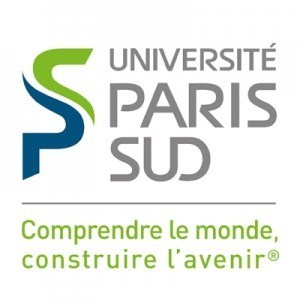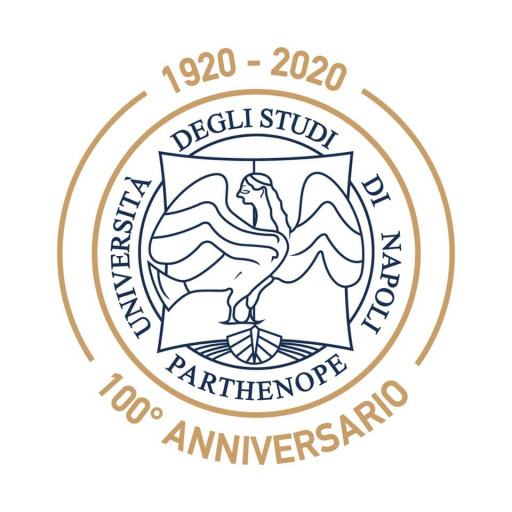Photos of university
The Human-Computer Interaction (HCI) program at Paris-Saclay University is a comprehensive multidisciplinary curriculum designed to prepare students for the evolving field of user-centered technology design and development. This program emphasizes the understanding of the ways humans interact with computers, digital systems, and emerging technologies, fostering skills that enable graduates to create intuitive, innovative, and accessible interfaces. Through a combination of theoretical foundations and practical applications, students explore areas such as cognitive psychology, design principles, user experience (UX) research, usability testing, interaction design, and system development. The curriculum covers core topics like visual and graphical design, human factors, information architecture, and the psychological aspects of user interaction, ensuring that students grasp the intricacies of designing technology that aligns with human needs and behaviors.
Students have opportunities to engage with cutting-edge technologies, including virtual reality, augmented reality, touch interfaces, and adaptive systems, preparing them to contribute to the development of next-generation interactive solutions. The program promotes an active learning environment through project-based coursework, internships, and collaborations with industry partners, enabling students to apply theoretical knowledge to real-world challenges. Additionally, emphasis is placed on ethical considerations, accessibility, and inclusivity in technology design, ensuring graduates can contribute positively to society by creating digital tools that are usable by diverse populations.
Graduates of the HCI program are equipped with a versatile skill set suitable for careers in academia, industry, and research institutions, including roles such as user experience designers, human factors specialists, interaction designers, usability analysts, and R&D engineers. The program also encourages interdisciplinary collaboration, integrating insights from computer science, psychology, design, and engineering to foster innovative solutions. With Paris-Saclay University’s strong links to the tech industry and research communities, students benefit from top-tier resources, expert faculty, and networking opportunities that facilitate their professional development. Overall, the Human-Computer Interaction program aims to develop professionals who can lead the way in designing technology that seamlessly integrates into everyday life, enhancing human capabilities and experience through intelligent, user-focused solutions.
S3 - Semestre 3
Tronc commun
| Matières | Ects | Cours | TD | TP |
|---|---|---|---|---|
| Fundamentals of Virtual and Augmented Reality | 5 | 21h | 21h | - |
| Fundamentals of Human-Computer Interaction | 5 | 21h | 21h | - |
| Advanced Programming of Interactive Systems | 5 | 21h | 21h | - |
| Evaluation of Interactive Systems | 2.5 | 21h | - | - |
| Design of Interactive Systems | 2.5 | 21h | - | - |
10 ECTS au choix
| Matières | Ects | Cours | TD | TP |
|---|---|---|---|---|
| Advanced Evaluation of Interactive Systems | 2.5 | 21h | - | - |
| Interactive Information Visualization | 2.5 | 21h | - | - |
| Scientific Visualization | 2.5 | 21h | - | - |
| Photo-Realistic Rendering | 2.5 | 21h | - | - |
| Gestural and Mobile Interaction | 2.5 | 21h | - | - |
| Mixed Reality and Tangible Interaction | 2.5 | 21h | - | - |
| Intelligent Multimodal Interaction | 2.5 | - | - | - |
| Virtual Humans | 2.5 | 21h | - | - |
| Groupware and Collaborative Work | 2.5 | 21h | - | - |
| Creative Design | 2.5 | 21h | - | - |
| Digital Fabrication | 2.5 | 21h | - | - |
| Advanced Design of Interactive Systems | 2.5 | 21h | - | - |
| HCI Project | 2.5 | - | 21h | - |
| Internet of Things and Human-Machine Interaction | 2.5 | 21h | - | - |
S4 - Semestre 4
1 UE obligatoire
| Matières | Ects | Cours | TD | TP |
|---|---|---|---|---|
| Career Seminar | 5 | 21h | 21h | - |
1 stage au choix
| Matières | Ects | Cours | TD | TP |
|---|---|---|---|---|
| Research Internship | 25 | - | - | - |
| Professional Internship | 25 | - | - | - |
- Curriculum : Courses list of previous years/list des enseignements des années antérieures (Mandatory)
- Curriculum Vitae (Mandatory)
- Letter of motivation (Mandatory)
- List of mentors (Optional)
- Recommendation letter (Mandatory)
- English level (Mandatory): acceptable proofs include TOEFL (general rule: overall score 92 or more, with at leasst 22 for the Writing section), IELTS (general rule: overall score 6.5 or more, with no score lower than 6), TOEIC (general rule: overall score 700 or more), University of Cambridge / University of Oxford CAE / CPE (general rule: level A-C), or a proof of studies conducted in English (general rule: at least a full year of studies conducted in English).
- Transcript of year 2015-2016 (Mandatory)
- Transcript of year 2014-2015 (Mandatory)
Scholarships
- Paris-Saclay Master's Scholarship programme
- « Île de France » Master Scholarship program
- Eiffel Scholarship Program
- Paris-Sud University's Top-Up
Human-Computer Interaction (HCI) at Paris-Saclay University is a multidisciplinary program that focuses on the study and design of systems, interfaces, and devices that facilitate effective interaction between humans and computers. This program aims to prepare students for careers in designing user-friendly interfaces, understanding user behavior, and developing innovative technological solutions that enhance user experience across various domains such as healthcare, entertainment, education, and industry. The curriculum covers a range of topics including cognitive psychology, computer science, design principles, ergonomics, multimedia, and software development. Students learn to apply scientific methods and engineering principles to create intuitive and accessible interfaces, leveraging the latest advancements in artificial intelligence, virtual reality, and augmented reality technologies.
The program is designed to equip students with both theoretical knowledge and practical skills through coursework, project-based learning, internships, and research opportunities. Collaboration with industry partners and research labs enables students to work on real-world challenges and develop innovative solutions. The program also emphasizes interdisciplinary collaboration, encouraging students from diverse backgrounds to come together and solve complex problems related to human-technology interaction.
Graduates of the Human-Computer Interaction program acquire competencies that are highly sought after in the job market. They can pursue careers in user experience (UX) design, usability testing, software engineering, research and development, and product management. The program also prepares students for further academic pursuits, including doctoral studies and research careers in human factors, cognitive science, and computer science.
The faculty involved in the program are experts in fields related to cognitive science, computer science, psychology, and design, providing students with a comprehensive education grounded in current research and technological advancements. State-of-the-art laboratories and computing facilities support hands-on learning, enabling students to prototype and evaluate interfaces using modern tools and techniques.
Overall, the Human-Computer Interaction program at Paris-Saclay University offers a rigorous and innovative educational experience that integrates science, engineering, and design to create human-centric technological solutions capable of improving how people interact with digital systems and devices in everyday life.








